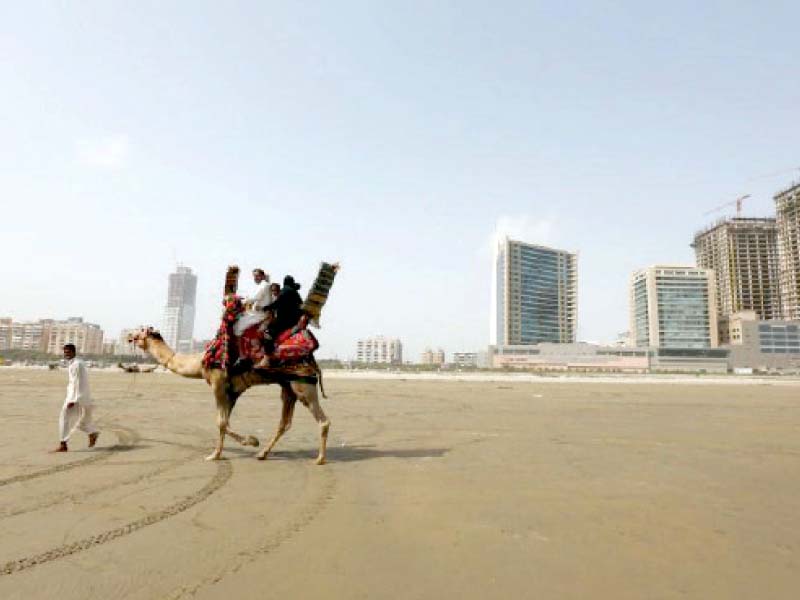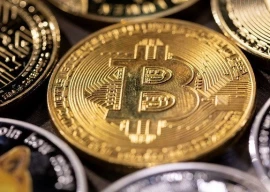
Pakistan is a democratic country, thus essentially with a governance system which is “of the people, by the people, for the people”. Interestingly, this democratic country has an economic system which is “of the elite, by the elite, for the elite”.
This elite capture may not be unique to Pakistan but the extent and scope of it, and the level of ignorance and tolerance of successive governments and general public is quite astonishing. Let me start with a question, is Pakistan following a capitalist economic model or a socialist one? The most probable reply would be that it is a mixed one.
Fine, but what mix is it? Or maybe there is no model at all, rather the economy is following the “power wave”; the power of lobbies, stakeholders and political sentiment.
It is high time to undertake a thorough assessment and develop a framework for an economic system that is “of the people, by the people and for the people”; a system that delivers efficiency, promotes inclusiveness, reduces inequalities and develops indigenous resilience to internal and external shocks.
One of the biggest problems, in the existing economic system of Pakistan, is the lack of depth and structure. It is inevitable to have a growing share of services in any economy but not at the cost of industrial and agriculture sectors.
Even in the services sector, the major share is of banks, enjoying the consumer loan boom and the telecom companies, riding on the connectivity wave. In fact, if one finds the drivers of economic activity in Pakistan, then the list is composed of the likes of real estate, consumer loans, mobile phones and automotive (on loans). One may not find any other economy with a gross domestic product (GDP) of $300 billion, but having the share of exports and net revenue collection of less than 10%. Lack or absence of productive sectors is enough to jolt any serious economist and policymaker.
Another problem is the absence of structure and enabling policies to ensure equitable wealth and income distribution. This results in accumulation of productive resources, particularly capital, in very few hands. The industrial sector is home to very few families and corporate conglomerates which, interestingly, also control some of the essential services such as banks.
One rich person/entity gives money to another rich person/entity to do a business, earn profit and repay with interest. Money stays in the top 5-10% of the businesses and then there is a huge gap of medium-level enterprises. Small business comes in the end, which rely merely on retail-level operations without any growth opportunities due to lack of capital and entrepreneurship if not labour as well.
A linked problem is unchecked profiteering. Powerful economic lobbies determine market conditions without any serious regulatory interventions. For example, why should a Pakistani consumer pay higher prices for very low quality cars that are available in international markets with higher quality and lower prices. The immediate counter-argument would be to protect the local industry and may I then request a sincere debate on how much local the car industry is.
The story of deletion programme is quite old to sell; now is the time to get to ground realities and start recognising consumer rights.
In case of availability of capital ie finance, the story is even bleaker. Is it possible for an ordinary potential entrepreneur to go to a bank and get business development loan?
On the contrary, the concessionary finance is always available to the top 5% businesses, in addition to regular write-offs of billions of rupees every year. Who pays for the concessionary and written-off loans? You and I, the ordinary folks who deposit in banks.
As a matter of fact, the microfinance institutions, which are meant to serve the lower strata of population, charge even higher interest rates, with the exception of very few such as the Akhuwat. Ordinary Pakistanis are feeding billions of rupees of their hard-earned income to the upper-level economic players in pursuit of betterment in their lifestyles.
This betterment is no more than an illusion, as the real one would come only when economic gains are shared equitably, and everyone gets equal access to economic resources and opportunities. Pakistan needs an economic system that works for everyone, ensures equality of opportunities and equitable distribution of economic gains. It is of utmost importance due to the geographical and cultural diversity that may take a negative turn should it not be mitigated through equal economic opportunities. Unfortunately, we have an evidence of happening it in our history.
Inclusive economy
It is imperative to start a grand national economic dialogue in order to define short, medium and long-term goals that could lead Pakistan towards an inclusive and prosperous economy.
Some of the points to foster this dialogue are as follows:
i) Devise an economic policy process that is bottom up, inclusive, dynamic and responsive.
ii) Focus on distributive aspect of economic transactions rather than mere volume to increase GDP. The enabling fiscal, monetary, labour and social policies should be designed accordingly.
iii) Give more resources and attention to the economically deprived regions and areas. Check the concentration of economic activities in geographic and industry clusters.
iv) Design a state/government support mechanism, fiscal and monetary, that is based on output, efficiency, employment generation and R&D, rather than a choice of “darling sectors”.
v) Adopt a monetary policy that facilitates productivity rather than consumption.
vi) Focus on trade-led growth and seek value addition and diversification of exports.
vii) Encourage and incentivise domestic investment mobilisation rather than going to floor to seek and retain FDI. This, in turn, would keep resources and profit repatriation inside the country.
viii) Discourage non-productive investments, profits and wealth parking such as in real estate.
ix) Enhance focus on women economic empowerment and their participation in economic activities.
x) Adopt a progressive taxation system rather than the regressive (current) one. Tax receipts should be a by-product of fiscal policy if such a policy is designed to facilitate business activities rather than penalising them. xi) Entrepreneurship and skill development, adoption of technology, R&D, startup support and business enabling environment should be the priority elements of economic policy instruments.
The economy of Pakistan is almost sick. It is essential to control the disease before a painful surgery that may lead to dysfunction of some of the organs.
A reset is already overdue. It is imperative to define a new socio-economic contract to ensure social and economic stability and make our economy futureproof.
The writer is an international economist
Published in The Express Tribune, February 15th, 2021.
Like Business on Facebook, follow @TribuneBiz on Twitter to stay informed and join in the conversation.

1725612926-0/Tribune-Pic-(8)1725612926-0-165x106.webp)















COMMENTS
Comments are moderated and generally will be posted if they are on-topic and not abusive.
For more information, please see our Comments FAQ